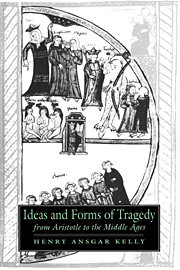Crossref Citations
This Book has been
cited by the following publications. This list is generated based on data provided by Crossref.
Kühne, Udo
2004.
Die mittellateinische Komödie als Problem der Literaturgeschichte.
Deutsche Vierteljahrsschrift für Literaturwissenschaft und Geistesgeschichte,
Vol. 78,
Issue. 3,
p.
355.
Minnis, Alastair
and
Johnson, Ian
2005.
The Cambridge History of Literary Criticism.
Minnis, Alastair
and
Johnson, Ian
2005.
The Cambridge History of Literary Criticism.
p.
1.
Nolan, Maura
2005.
John Lydgate and the Making of Public Culture.
Gillespie, Vincent
2005.
The Cambridge History of Literary Criticism.
p.
145.
2005.
A Companion to Greek Tragedy.
p.
505.
Hanna, Ralph
Hunt, Tony
Keightley, R. G.
Minnis, Alastair
and
Palmer, Nigel F.
2005.
The Cambridge History of Literary Criticism.
p.
361.
Wetherbee, Winthrop
2005.
The Cambridge History of Literary Criticism.
p.
97.
Quash, Ben
2005.
Theology and the Drama of History.
Kastan, David Scott
2007.
A Companion to Shakespeare's Works, Volume 1.
p.
5.
2008.
Literature and Heresy in the Age of Chaucer.
p.
299.
Fradenburg, L O Aranye
2010.
Beauty and Boredom inThe Legend of Good Women.
Exemplaria,
Vol. 22,
Issue. 1,
p.
65.
Riddy, Felicity
2010.
The Cambridge History of English Poetry.
p.
96.
Burgwinkle, William
Hammond, Nicholas
and
Wilson, Emma
2011.
The Cambridge History of French Literature.
Lurie, Michael
2012.
A Companion to Sophocles.
p.
440.
Hoxby, Blair
2012.
What Was Tragedy? The World We Have Lost, 1550–1795.
Comparative Literature,
Vol. 64,
Issue. 1,
p.
1.
Dewar-Watson, Sarah
2013.
Christopher Marlowe in Context.
p.
49.
2013.
The Encyclopedia of Greek Tragedy.
p.
995.
2013.
The Encyclopedia of Greek Tragedy.
p.
1058.
2013.
The Encyclopedia of Greek Tragedy.
p.
1076.





